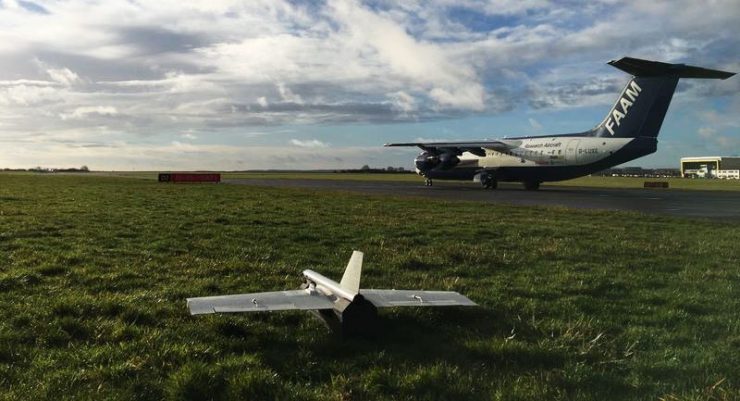The UK National Beyond Visual Line of Sight (BVLOS) Experimentation Corridor (NBEC), which extends 10 miles from Cranfield University airport to Blue Bear Systems Research Twinwoods test site near Oakley, now features holographic radar surveillance supplied by Aveillant, a wholly owned Thales company. The flight corridor is designed to test BVLOS flights in a safe, managed environment for unmanned aircraft experimentation, working towards a range of uses, including for the emergency services and medical industries.
NBEC is the result of a collaboration between Cranfield University, Blue Bear Systems Research, Thales and Vodafone to enable trial operations to pave the way for unsegregated flight operations.
Aveillant’s radars are already used to detect drones at several international airports, to prevent unmanned systems from entering the flight path. This same radar technology is now being applied by NBEC, with Aveillant’s Gamekeeper Radar successfully tested over the last month at Blue Bear’s facility. Holographic Radar system differs from traditional mechanically scanned radars and electronically scanned systems, requiring only a very narrow bandwidth to digitise the entire volume of airspace it sees. Dr Dominic Walker, Chief Executive Officer at Aveillant explains: “The radar successfully detected and tracked a number of different drones, with excellent correlation between the detected and real tracks. This test proves and de-risks the technology which will underpin the NBEC airspace monitoring.”
NBEC is the UK’s first national testing facility. The CAA selected NBEC along with the Digital Aviation Research and Technology Centre (DARTeC), also under construction at Cranfield, as one of six companies selected to join the CAA ‘Innovation Sandbox’. NBEC’s test centre will be opening for use by the aerospace industry in summer 2020. Director of Aerospace at Cranfield, Professor Iain Gray, said: “NBEC is a national asset that will help unlock the potential of a modernised UK airspace. The key to future drone operations is not segregation, but full integration, ensuring fair and equitable use of airspace.”
For more information visit:




